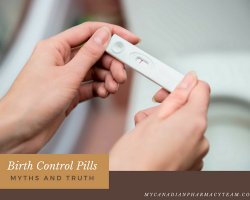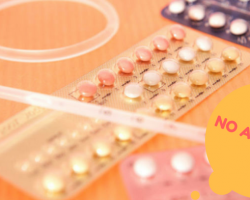Alesse: A Comprehensive Overview of a Popular Birth Control Pill Alesse is a widely used oral contraceptive pill that is highly effective in preventing pregnancy. This article provides detailed information about Alesse, its ingredients, potential adverse effects, genetic variations, and how it works on the body. Alesse: Preventing Pregnancy with Hormonal Combination Alesse is a birth control pill that contains a combination of hormones, ethinylestradiol, and levonorgestrel. These hormones work together to prevent ovulation, the…
Category: Birth Control
Alesse: A Comprehensive Guide to a Popular Oral Contraceptive Pill Alesse is a combination oral contraceptive pill that is commonly used by women to prevent unwanted pregnancies. It contains two types of hormones: ethinyl estradiol and levonorgestrel, which work together to effectively inhibit ovulation and prevent fertilization. When taken as directed, Alesse is a highly effective form of birth control. Its combination of hormones prevents the release of eggs from the ovaries, thins the uterine…
Birth control pills are medications containing various hormones able to suppress the ovulation. As a result, the pregnancy cannot come. But this is only half-true. After all, not everyone knows that there is a diametrically opposite effect of birth control pills, allowing after taking them to quickly get pregnant. This phenomenon has scientific name of «rebound effect» or «pregnancy on withdrawal». Birth Control Pills Effect on Pregnancy The principle of action of hormonal contraceptives is…
Can I smoke and what products should I refuse from when taking birth control pills? Is it true that they increase possibility of developing breast cancer and reduce fertility? We gathered in one place everything you need to know about hormonal contraception. Hormonal Contraceptives can Provoke Breast Cancer Partly true. Women with breast cancer or with confirmed genetic predisposition to this disease should not take hormonal contraceptives. On the other hand, according to numerous My…
Women with breast cancer or with confirmed genetic predisposition to the disease should not take hormonal contraceptives. On the other hand, according to data of My Canadian Pharmacy numerous studies, if you take COCs (combined oral contraceptives) during three to five years or more, risk of endometrial and uterine cancer is reduced by 50%, ovarian cancer – 40%, as well as chances of colon cancer are significantly lowered.
Most common risks of taking hormonal contraceptives are weight gain, impaired fat metabolism, thrombosis, migraines, and uterine cancer. The list of harmful effects of hormonal contraceptives is so big that we will focus only on main negative reactions. All birth control pills that prevent ovulation contain synthetic female hormones and steroid hormones, which have a major impact on a women’s physiology. So it is easy to understand what serious consequences it may cause. The results of…
Female contraceptives in the form of pills (combined oral contraceptives – COC), not only protect against unwanted pregnancy, but in some circumstances can cause such effect as decreased libido. This is because pills include special substances that suppress testosterone production in female body, which is responsible for female sexuality. But no matter how high products’ quality is, each of them has its own side effects.
Practice shows that oral contraceptives cannot protect us from unwanted conception by 100%. Pregnancy can occur while receiving even the most advanced and sophisticated products. Why is this happening, how to avoid it? And most importantly, what to do about an unplanned pregnancy? This and other question were considered in this article.
The majority of women are interested in the question whether it is possible to combine Ortho Tri-Cyclen and alcohol consumption. This important question is answered by Jessica Sanderson, the specialist in modern hormonal contraception. Beginning of birth control pills reception does not indicate the end of life. Of course, holidays, birthdays, corporate parties and romantic evening with a loved one may happen but there is no strict “prohibition”, you should not swing from one extreme to another, regularly…
The possible serious side effects of Ortho Tri-Cyclen are: blood clots in lungs, heart attack, or blood stroke that may lead even to a fatal case. blood clots in legs or eyes. Serious blood clots can take place especially if you smoke, are obese, or are older than 35 years old. Severe blood clots are more likely to occur when you: start taking birth control pills for the first time; restart the same or different…

 English
English Deutsch
Deutsch Français
Français Italiano
Italiano Español
Español Svenska
Svenska Português
Português 日本人
日本人 Dansk
Dansk Norsk
Norsk Suomi
Suomi Czech
Czech






